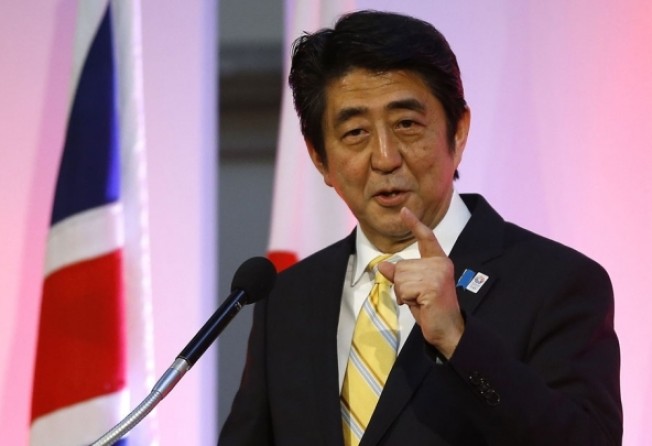Japan's leader Shinzo Abe is accused of 'turning a blind eye' to extremism
Japanese leadership wants to whitewash military past, says Xinhua editorial

Japan is edging further away from its goal of becoming a "normal country" in the post-war world, Xinhua said in a scathing editorial published this week.
The piece slammed Japan's leadership under hawkish Prime Minister Shinzo Abe for making revisionist comments about past war crimes and turning a "blind eye" to the rise in right-wing extremism and militarism.
Such remarks, the editorial argued, were attempts to "whitewash the country's militarist past or even to deny aggression".
"In a 'normal country', a government will not deny wars of aggression launched on foreign soil, tolerate xenophobic rallies, nor allow distortion of facts in history textbooks," said the editorial, which was written in response to an anti-Korea rally in Tokyo organised by an ultranationalist group.
The protesters took to the streets on Sunday waving Imperial Japanese army flags, blaring militarist music and chanting hate slogans. Fights broke out between protesters and counter-protesters.
The editorial said the violence signalled a rising tide of right-wing extremism.
"Pandering to the revival of militarism threatens to challenge the post-war international order and take the country even further from its goal [of becoming a normal country]."
The editorial said the incident was reminiscent of Kristallnacht, or Night of the Broken Glass in 1938, in which co-ordinated attacks were launched on Jews across Germany and Austria by citizens with the support of the Nazi regime.
The strongly worded editorial also criticised the Japanese government for taking "dubious" positions on issues such as comfort women, or war-time sex slaves, and allowing officials to pay respects to war criminals at the Yasukuni Shrine.
Abe, according to the editorial, was attempting to revise Japan's post-war pacifist constitution with the aim of "beefing up" the military might of the Self-Defence Forces as well as "offensive weapons".
"A nation that does not have the courage to reflect on its past will not be able to move forwards. Abe has much to learn from Japan's abnormal past to define the correct steps toward a 'normal country'," the editorial said.
Tensions have been rising between China and Japan over a group of disputed islands in the East China Sea, known as the Diaoyus to China and the Senkakus to Japan.
The long and heated row was reignited last year after Japan bought them from a private owner.